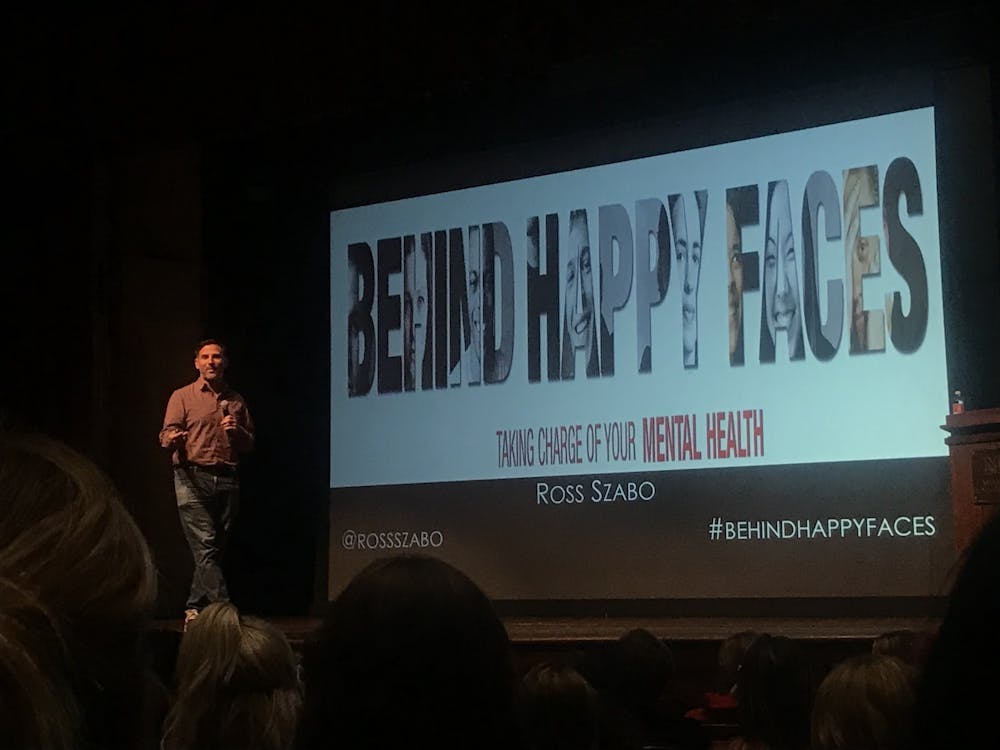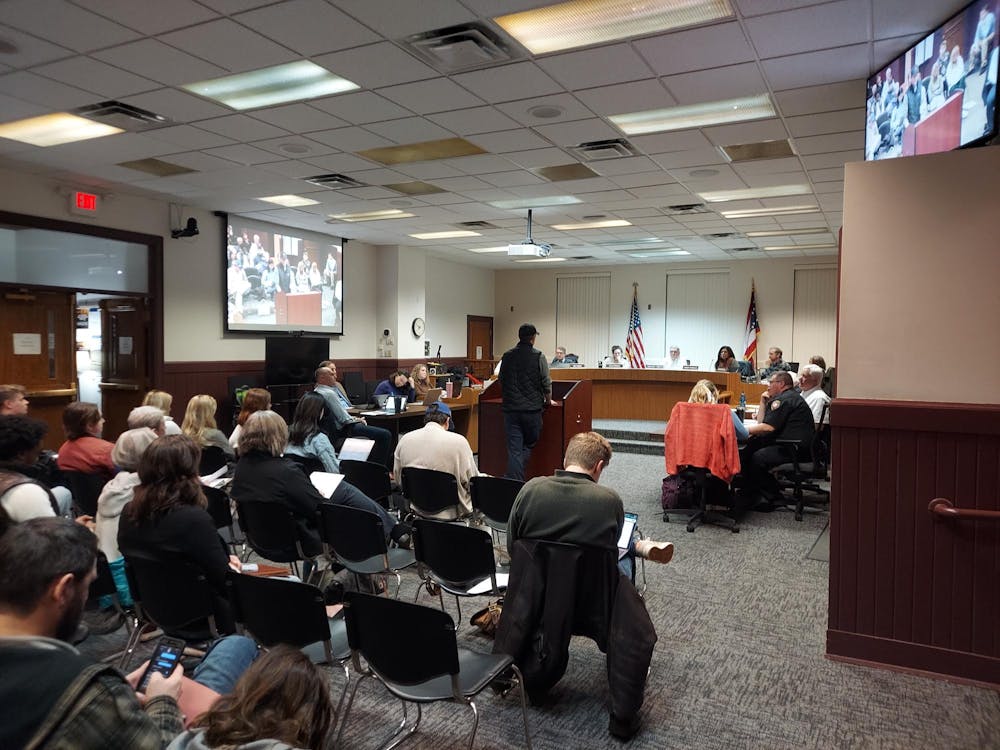Award-winning speaker and author Ross Szabo visited Miami University on Oct. 19 to share his struggle with bipolar disorder and discuss the importance of seeking help for mental health.
Szabo is the wellness director at the Geffen Academy at the University of California Los Angeles (UCLA), the CEO of the Human Power Project and the author of Behind Happy Faces. The event was co-sponsored by Miami’s Greek Governing Councils and HAWKS Peer Health Educators for Suicide Prevention Week.
Szabo began his lecture by clarifying misconceptions and negating stigmas surrounding mental health disorders.
“Everywhere I speak around the world right now, people tell me that there are higher rates of anxiety and depression than they’ve ever seen, and that is possible, but it is also possible that people do not know the difference between feeling nervous and actually having an anxiety disorder,” Szabo said.
Szabo argued that information on how to seek help is more important than awareness.
“Over 50% of college students don’t see help,” Szabo said. “They don’t talk to a friend; they don’t talk to anyone about their mental health.”
Szabo then went on to discuss his struggle with bipolar disorder.
At 11 years old, Szabo’s older brother was hospitalized in a psychiatric ward. Two weeks after Szabo visited his brother, his grandmother passed away. Ten months after the death of his grandmother, his best friend died in a car accident. Two months after the passing of his best friend, his grandfather died.
Szabo began drinking alcohol to cope with his pain. At 16 years old, Szabo was diagnosed with bipolar disorder.
“Two very dangerous things happened before that diagnosis,” Szabo said. “Number one, I’ve now been hiding my feelings about severe trauma for five years, and number two, I learned to drink alcohol before I learned to talk about my feelings.”
Szabo spent the early part of his young adulthood navigating his mental health. He experienced suicidal thoughts and tried to take his own life many times. At 22 years old, Szabo attempted to kill himself with alcohol after a fraternity formal, which is when he realized he needed help.
“It is almost impossible to drink to the point of destroying yourself and still care about yourself,” Szabo said. “But if you don’t address the self-hatred, if you don’t address the culture that supports the self-hatred, you can’t make the change.”
Enjoy what you're reading?
Signup for our newsletter
Szabo concluded his talk by discussing positive and negative coping mechanisms.
“Some people drink. Some people smoke weed. Some people use prescription drugs. Sometimes coping isn’t an action, but lack of action,” Szabo said. “The most important time for the development of your coping mechanisms is right now.”
Elizabeth Regan, a senior finance major, came to hear Szabo talk with her sorority, Alpha Delta Pi. Regan thought Szabo’s talk was understandable and engaging.
“I honestly didn’t know what to expect because mental health talks can kind of go over people’s heads, [but] I think he did a really good job of making it a big deal [and] making us laugh,” Regan said.
Stephanie Tonkovic, a senior marketing major, also came to the lecture with her sorority, Kappa Delta. Tonkovic, who suffers from a mental health disorder, said she enjoyed the event and thought Szabo’s talk was relatable.
“It made me think back to the point where I hit my rock bottom and how far I have come,” Tonkovic said.
Tonkovic said it is important for Miami to host speakers like Szabo so they can bring attention to mental health disorders.
“Speakers like this bring awareness and let people share things more,” Tonkovic said.
Jayla Kaylor, a junior nursing major, agreed with Tonkovic and said Miami's observation of Suicide Prevention Week helps to destigmatize mental health disorders.
“It’s just really important to bring awareness to issues like mental health and that it’s okay to have problems like that and that we can talk about it versus sheltering it away,” Kaylor said.




